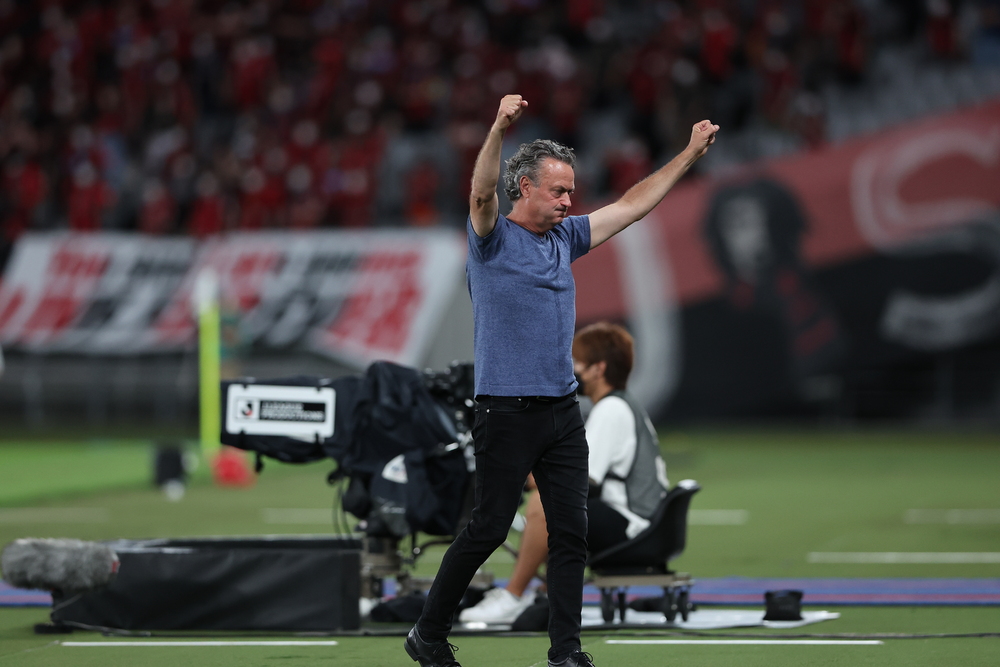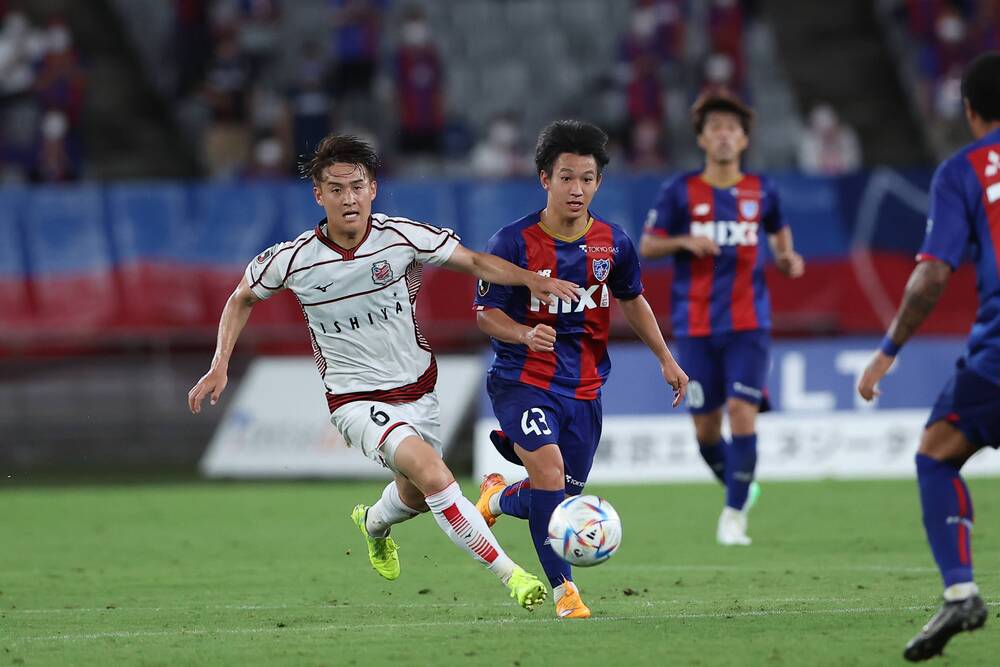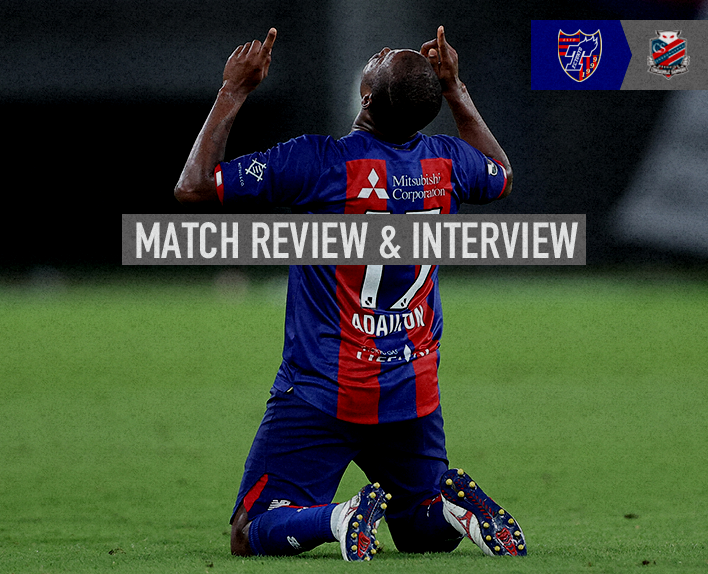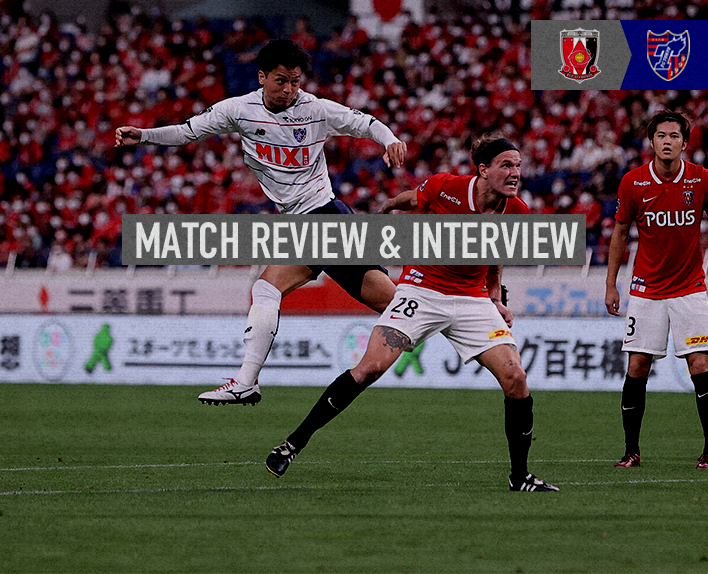Match Preview
The third match of the consecutive games played three days apart will be against Urawa Reds away. In the previous match, Tokyo fought in front of the "voices" of fans and supporters for the first time in two and a half seasons, receiving significant support and achieving their first victory in four league matches.
The opponent, Urawa, struggled in the first half of the season, going through a period without a win in 9 matches. However, in the last 5 matches, they have improved their form with 2 wins and 3 draws, and their ranking, which was once in the relegation zone, has now recovered to 11th place.
In the previous match against Kyoto SANGA F.C., although we took the lead in the first half, we allowed a quick turnaround in the second half and ended up drawing after equalizing shortly after. However, as indicated by the shot count of 17 to 6, we significantly outperformed the opponent in terms of finishing scenes and decisive moments close to the goal, making it a match where Urawa held the initiative in attack but could not secure the win.
In the first half of this season's match, both teams lacked decisive moments and ended in a 0-0 draw. There were periods where both teams held possession, but overall, it felt like Tokyo was under pressure from Urawa's vigorous attacks for most of the 90 minutes. For Tokyo, this was the third match in a row, and the fatigue was evident throughout the team. Additionally, playing in a daytime game with strong sunlight and a temperature of 25.6 degrees, it was a match where they managed to secure at least one point.
Urawa's Ricardo RODRIGUEZ, the manager, is characterized by analyzing the opponent's approach and adapting the attacking and defensive styles accordingly. Although results have been challenging, the tactical foundation has progressed in his second year, and the offensive style has finally started to lead to victories as the season reaches its midpoint. On the other hand, Tokyo has also rapidly advanced its tactics, achieving a dominant victory against the Kashima Antlers, who were at the top of the league at the end of the first half. Of course, there are aspects where the team can collapse suddenly due to a single misalignment, as seen in the match against Sagan Tosu, but experiencing that game has actually tightened the team's resolve.
In the clash of both teams with an attacking mindset, we want to push forward and uphold Tokyo's style, seize goals, achieve consecutive victories, and accelerate the evolution of the team once again.
[Interview with Coach Albert PUIG ORTONEDA]
Q: Was the change in practice time influenced by today's coolness?
A, simply put, it is very close to Urawa. Therefore, there was no need to train early in the morning and rush to depart, so we delayed the start time a bit. We set it for 11 o'clock, but we will arrive there by 4 PM after leaving here. The most stressful time when playing or managing a professional team is the long time spent in the hotel. Since there wasn't much difference in temperature whether it was 9 or 10 o'clock, we decided on an 11 o'clock start.
Q: Does the content of practice change depending on the coolness?
If it is hot in the 11 o'clock hour rather than the content, I think it will be necessary to start practice as early as possible at 9 o'clock or, if possible, at 8 o'clock to find a time when we can do what we want. However, since the heat is bearable now, we are able to achieve the content we expect even during this time.
Q: In the training content, there is an 8 vs 8 plus 3 free men possession. What is the aim of this?
A, for our playing style, this training is one of the core practice menus. Teams aiming for this playing style, such as Barcelona, Manchester City, and Liverpool, practice this menu almost daily, and it contains many elements of tactics. By repeating it, I believe we can instill it firmly in the players. It will also lead to an improvement in technical levels, and I think particularly the tactical elements and decision-making will improve more.
Some people may misunderstand it as the same as possession games, but it is definitely not. It is a very challenging practice that encompasses almost all elements of soccer. The training menu for positional games is conducted almost daily, not just the day before a match, although the format may change.
Q: Is the current practice content from when Coach Albert PUIG ORTONEDA was with the Barcelona Academy?
Yes, that's exactly right, and I've heard that many coaches, including Guardiola and Jürgen Klopp, place great importance on this training regimen, not just me. It's not something I created, nor is it something that Barcelona created; it's a widely known training regimen adopted by many clubs and coaches.
Q: Player Kajiura participated in the last match against Sapporo.
I think it's a very simple thing. As demonstrated by player Kajiura in the match against Sapporo, only those players who stand on the pitch with a strong desire to succeed in this world can survive. You cannot survive by looking at the ground; you must raise your gaze and show your willingness to fight. You need to have that strong mentality, and of course, talent is also necessary, but since player Kajiura already possesses talent, I believe that strong mentality allowed him to express his talent on the pitch. Even with high-quality techniques and wonderful talent, I think it has no value if it is not accompanied by a strong mentality.
Q: Are there players who play with ambition in Tokyo?
A, what do you think about young players not having the hope of going abroad? Where are the highest level players in the world gathered? Regardless of whether it becomes a reality, I believe that having big dreams is something everyone should do in a sense. For example, I think judo is Japan's national sport. I know Spaniards who practice judo in Spain, but I believe that Spaniards who want to aim high in judo would want to go to Japan and win there. As for football players, I think everyone has a dream of succeeding in Europe. That’s why I believe anyone can understand that succeeding there is difficult. Not only the best players in Europe but also wonderful players from Africa and South America are gathering in Europe.
Q: What is the importance of the match against Urawa, and what kind of analysis are you doing in preparation for the match against Urawa?
First, we will be facing Urawa, one of the largest clubs in terms of management scale in the current J1. I believe their current ranking is not where they usually are. In terms of management scale, I recognize that they clearly surpass us. Considering their situation, it is easy to imagine that it will be a difficult match.
We have a team of high-quality players. If we allow them to play well, it will be a very difficult match. Therefore, we must neutralize their strengths. At the same time, it will be crucial for us to showcase our strengths as much as possible. We have been able to train well over the past few days. It will certainly be a challenging match. That is why I think it will also be a very attractive match to play in.
[Player Interview]
<Yuki KAJIURA>
Q: It has been some time since the Sapporo match, but how do you reflect on the game now?
A, I reviewed the match again, and I felt it was a game where I was helped by the players around me. It was good that we won, but looking at the content, there are still areas that need improvement, and it was an impression that clearly showed what we could and couldn't do in the match.
Q: What were you thinking about being aware of before entering the match?
A, I thought such an opportunity would rarely come, so I was always thinking about expressing everything I could from the very beginning. I believe it was good that I was able to show what I had prepared well.
Q: What were you able to do and what were you unable to do during the match?
A, while it was successful to increase the intensity of pressing in defense, we were not able to engage much with the ball or participate in the buildup. The style of football that we aim for in Tokyo is to attack while valuing ball possession, so I want to be more conscious of increasing the number of times we engage with the ball and improve in that aspect.
Q: How was it playing with the cheers at Ajinomoto?
During the warm-up before the match, the cheers began, and I felt it was amazing at first impression. I am happy to be able to play in this environment, and the feeling that we must win has resurfaced within my emotions. Even during the match, when I glanced at the fans and supporters, I could see them cheering with all their might, and the feeling that I must meet their expectations welled up.
Q: What kind of play do you want to show in the match against Urawa?
A, while continuing to maintain a high intensity in defense, I have only participated in one match so far, so I need to keep this up, and I hope to gradually increase what I can contribute within that framework.
Q: What kind of analysis are you doing against Urawa?
A team that is good at moving the ball, so I think it is important for everyone to work together to apply pressure and not let the opponent have the ball. Since we also have a playing style that values possession, I believe that increasing our time with the ball and preventing the opponent from showcasing their characteristics will lead to victory.
Q: What do you want to be aware of in terms of communication and collaboration with the players around you?
During practice, I communicated a lot with the surrounding players, discussing how to press in various situations. Even during the match against Sapporo, we were able to coordinate our defense without much hesitation, so I want to maintain that awareness of communicating with each other and play in collaboration with my teammates in the next match as well.
Q: Please share your enthusiasm for the match against Urawa with the fans and supporters.
Until the last match against Sapporo, we had been unable to win, but we finally achieved victory, and I want to do my best to continue our winning streak in the next match against Urawa.






